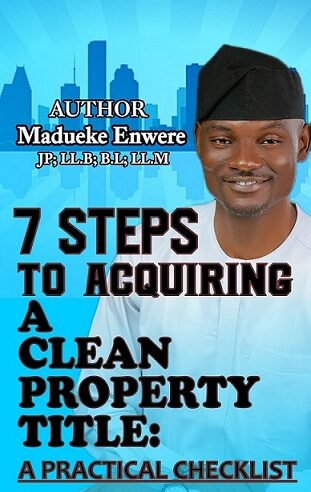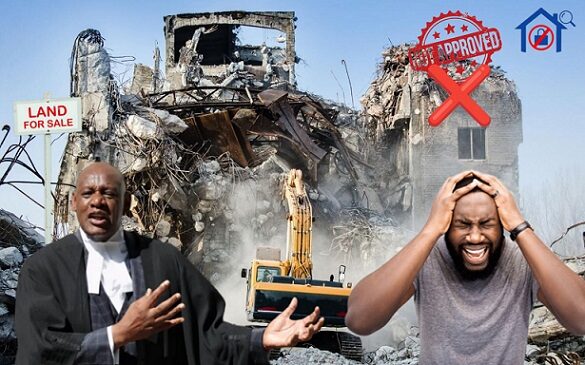I recently got a call from a senior lawyer.
He was representing a client looking to buy land in an estate — but he wasn’t exactly sure how to verify if the land was clean: that is, free from disputes, government interest, or legal disputes. I told him what to do. But at first, I thought to myself:
“You collected fees from your client, and I should now indirectly do the due diligence for you?” But for the sake of old times —he was my senior in the University and because I am passionate about helping people avoid real estate scams — I shared the processes with him.
Now I’m sharing the same processes (steps) with you — whether you’re a lawyer, real estate agent, or a first-time buyer. Knowing practically what to do will save you/client from a lot of errors and the consequent embarrassments, especially as a lawyer.
Watch the full video on Youtube:
STEP ONE: VERIFY THE LOCATION WITH AN INDEPENDENT SURVEYOR
Beyond the legal or registry search, don’t just take the seller’s site plan for what it is. Do your own independent survey.
Why? Because many estate companies market lands far away from the actual site. The descriptive landmarks they give you are often several kilometers away from the actual location being marketed. They give you an idea of a proximate location towards getting you pay higher than the actual value. As you know, property is valued by its location.
Your own paid surveyor will plot the coordinates and tell you the truth of what is on ground vis-a-vis the site plan.
STEP TWO: CHECK AND CONFIRM THE BUILDING PLAN APPROVAL
Ask for the Building Plan Approval and verify that it was actually issued by the Development Control.
This is important because Development Control doesn’t approve any building plan unless the land title is verified inter-departmentally to actually belong to the applicant before his/her application can be processed and approved. So if this approval checks out, it adds another layer of legitimacy to the property.
STEP THREE: CONFIRM THE PLANNING PERMIT
Confirm that the estate developer has a Planning Permit from the Urban and Regional Planning Department of FCDA. This ensures the estate is located in the right zone, not on green area, buffer zone, or government-acquired land.
You want a home, not a court case.
Now — if all three of these steps check out, you’re most likely dealing with a clean property.
If they don’t — walk away. It’s not worth the risk.
These steps apply not just in Abuja, but across Nigeria.
The only difference is the names of the agencies. The principle is the same.
THE COMPLETE GUIDE TO SAFE PROPERTY INVESTMENT
These three steps are just the beginning. If you want the full roadmap to protect yourself, get our eBook: “7 Steps to Acquiring a Clean Property Title: A Practical Checklist.”

For just ₦10,000, you’ll gain the knowledge, mastery and confidence needed to navigate any real estate deal without regrets.
At Encumbered Properties, our mission is simple: protect you from avoidable real estate frauds. Don’t just buy land. Buy peace of mind.
THIS ARTICLE WAS WRITTEN BY:
Madueke Enwere
A Real Estate Lawyer, Chief Superintendent of Police and by God’s grace the Founder ENCUMBERED PROPERTIES DOT COM (the only real estate frauds prevention platform)
#RealEstateNigeria #LandScam #PropertyFraud #DueDiligence #CleanPropertyTitle #PropertyInvestment #SafeInvestments #EncumberedProperties

